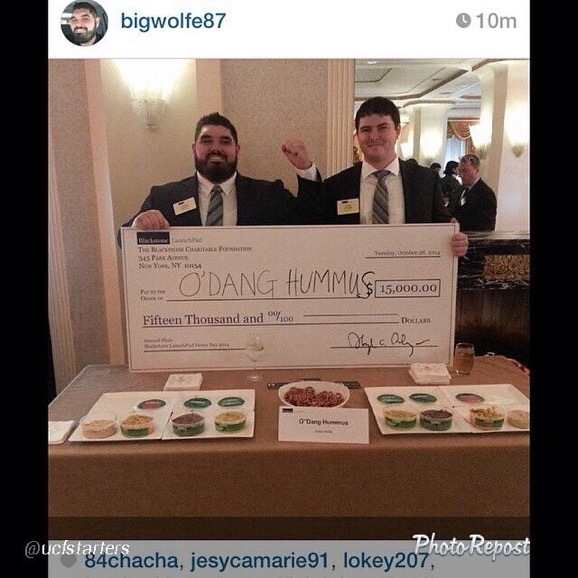Friday night UCF held a dinner for national merit scholar finalists and their parents. It is part of our effort to turn these high achievers into Knights. I always volunteer to go to this event but, this time I did something different: I took my own national merit scholar with me. I brought Amanda Brown. Well, really I had her crash the event. It was an exercise in risk-taking on her part, but this is one of those instances where the Dean can get away with last minute stuff others can’t, so it really wasn’t a high-risk adventure for her.
For those of you who don’t know, Amanda is our lead Ambassador, Honors College student, study abroad veteran, and economics major with a job waiting for her when she graduates this spring at a major bank having wowed them in the interview. In short, she has already gotten to the one.
She is also restless. Amanda is not satisfied with where she is and not entirely sure where to go or how to get there. Midlife crisis at age 22? Maybe. Already worrying about the transition from success to significance? Probably. Tired of me trying to give her lame advice on this? Highly likely. Horrified I am writing about this on my blog? Most certainly.
Amanda’s unease didn’t stop her from being the center of attention at our table. She did her usual awesome job of explaining what it is like to be a UCF student and the legion of opportunities we provide. But as I listened to the table conversation and the program that followed, I wondered what would motivate these students to choose UCF over another institution. Every school they visit is going to give them a “free-ride” scholarship. Every institution they visit will trot out highly successful alumni, accomplished faculty and cute and cuddly students to share their success stories. And honestly, unless we mess these students up, they are likely to be professionally successful independent of their alma mater. So, what will make us the choice of people who have so many choices? And, why does it matter to them if they choose UCF over some other institution?
Hard questions. Perhaps the answers lie in helping Amanda solve her significance problem. I don’t mean to suggest that we can do this for her—a good part of the solution lies within her—but I have become increasingly convinced that we in academia are not very good at calling people to action. I worry that we have forgotten that universities are about hope (something different but related to landing a job at graduation) and that it’s ultimately about what people do with all of that knowledge, not just for themselves but for the world we are trying to invent, that really matters. We need to renew this rhetoric and invite people to join us on this mission in each of our areas of inquiry. Maybe when each of us can clearly articulate what we are all about, our students will discover what they are all about and those seeking meaning will choose to join us on our quest.

